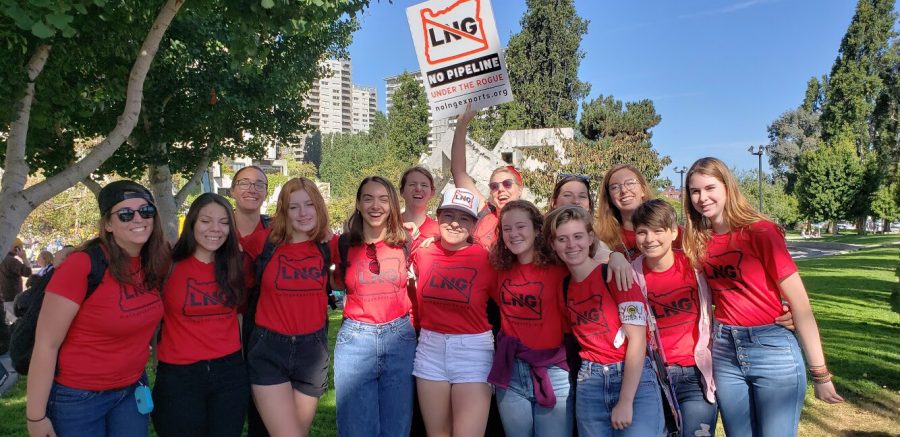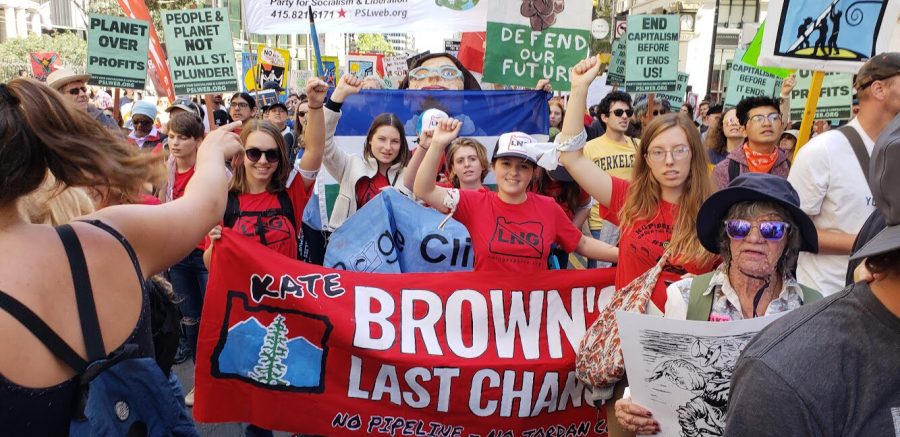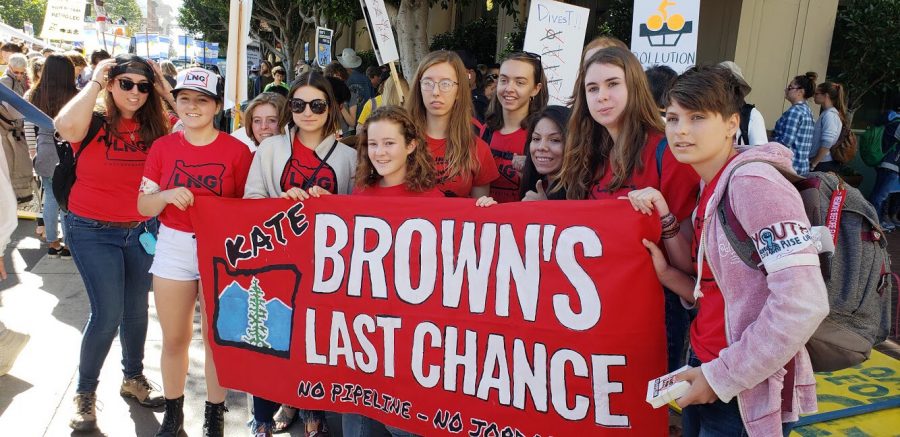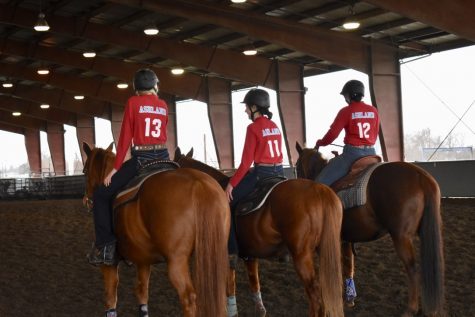Rogue Climate Action
Youth Go to San Francisco

On Saturday, September 8th, over 30,000 people from around the world marched in San Francisco as part of a worldwide demonstration for the Rise for Climate, Jobs, and Justice Campaign, just days before Governor Jerry Brown’s Global Climate Action Summit (GCAS). Brown, in his last stretch of a long political career, was the principal organizer of GCAS which addressed the progress and setbacks of international climate goals. Though Brown has been a vocal advocate for climate action, climate activists have protested his energy policies, which include the expansion of oil drilling in California. In the week leading up to the summit, activists held conferences, actions and events in order to pressure Brown to commit to real, lasting policies aimed at climate change.
Among the throng of people chanting in every language for renewable energy, environmental justice and protecting indigenous lands, there stood four familiar faces from AHS: seniors Nicole Mullen, Eliza Strong, Bella Mannray and 9th grader Rachel Davis. The group attended the march with the non-profit organization Rogue Climate to “pressure our Governor Kate Brown to stop the Jordan Cove Liquid Natural Gas Pipeline,” stated Mullen. These four were chosen to represent Southern Oregon at the march, along with three students from Phoenix High School and two from The Siskiyou School.

Davis says that the most important thing she learned while in San Francisco was that “a lot of people actually do care” about climate change and the threat it poses to this generation’s future. Davis recalls how amazing it was to march with youth from around the world and to see people passionate about creating positive change. She felt empowered and invigorated seeing how many people, especially youth, were coming together to advocate for climate change.
Another moving experience for Davis occurred at the West Berkeley Shellmound. The Shellmound is a sacred place for the Ohlone tribe of the Bay Area. A prayer was held for the land and sacred places for indigenous tribes, along with dancing to traditional music. Indigenous groups face a disproportionate amount of environmental impact, standing on the frontlines of climate change. Indigenous lands and resources are often subjected directly to environmental degradation caused by mining, logging, crop cultivation and dams, without the consultation or informed consent of indigenous people
Translators in Spanish, Cantonese and Portuguese spoke throughout the ceremony to eliminate language barriers. Climate change affects all cultures, all races and all walks of life. “Those who are able,” says Nicole Mullen, “must be an ally to those disproportionately affected.”

Another opportunity for the students was working in the Urban Tilth Community Garden in Richmond, CA. They met Urban Tilth members on the San Francisco BART on their way to the march and were subsequently invited to the garden to work and explore. What used to be an abandoned strip of land has been transformed into a lush garden and community center. This is just one example of how communities can work together to create positive environmental change in their city. Becoming an advocate for climate action locally and globally is easier than one might expect. At AHS, students can get involved in local projects and events by joining the Sustainability Club, which meets every Wednesday in Mr. Hartman’s room, SC-2.

